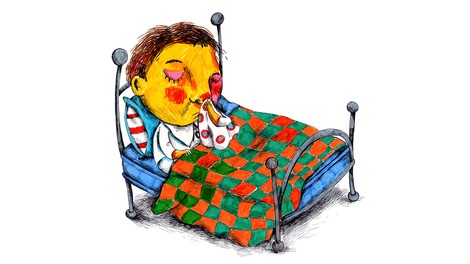Your podcast discovery platform
Curious minds select the most fascinating podcasts from around the world. Discover hand-piqd audio recommendations on your favorite topics.

piqer for: Health and Sanity Boom and bust Climate and Environment
Melissa Hutsell is an award-winning freelance journalist with a deep rooted passion for both community and international journalism. She was born and raised in Northern California, and has lived, studied, worked, and traveled in more 20 different countries. Melissa holds a Master's degree in Global Journalism from City University London, as well as degrees in Journalism and Globalization from Humboldt State University. Though she covers various topics as both a writer and editor, she specializes in business and cannabis journalism.
It’s Aint Just A Cold … It’s “Sickness Behavior”
Though the common cold is seen as a minor illness, it can really bring sufferers down. When sick, we often feel the need to retreat: away from family, work, friends, etc. — a phenomenon known as “sickness behavior”.
This isn’t a wimpy reaction — it's evolutionary. Our bodies and our moods are affected when we’re fighting off infection, describes rhinologist Philip Chen.
“There is plenty of evidence that having a cold impairs mood, alertness and working memory and that brain performance falls off with even minor symptoms,” reports the article. But, for most, a cold isn’t an excuse to forego work — meaning most (but not all) may work through it, therefore putting others at risk.
Colds are among some of the most common cases for working sick. In fact, a 2015 survey of food services workers found that more than half of employees always or frequently went to work while sick. For hospital workers, that number is around 83 percent, according to a survey of health care providers at the Children’s Hospital of Philadelphia.
The same survey found that approximately half of workers don’t know what’s considered “too sick to work”.
Some people, however, are sensitive to the signals of sickness, and are “super-hypochondriacs”; their response is to bundle up and stay in bed.
“But by and large,” says Eric Shattuck, professor of evolution and anthropology at University of Texas, San Antonio, “people try to ignore the cues of sickness behavior unless they are so sick they can't get out of bed ... There's what I suspect is a very cultural pressure to perform and to perform well, especially for what we consider minor illnesses."
